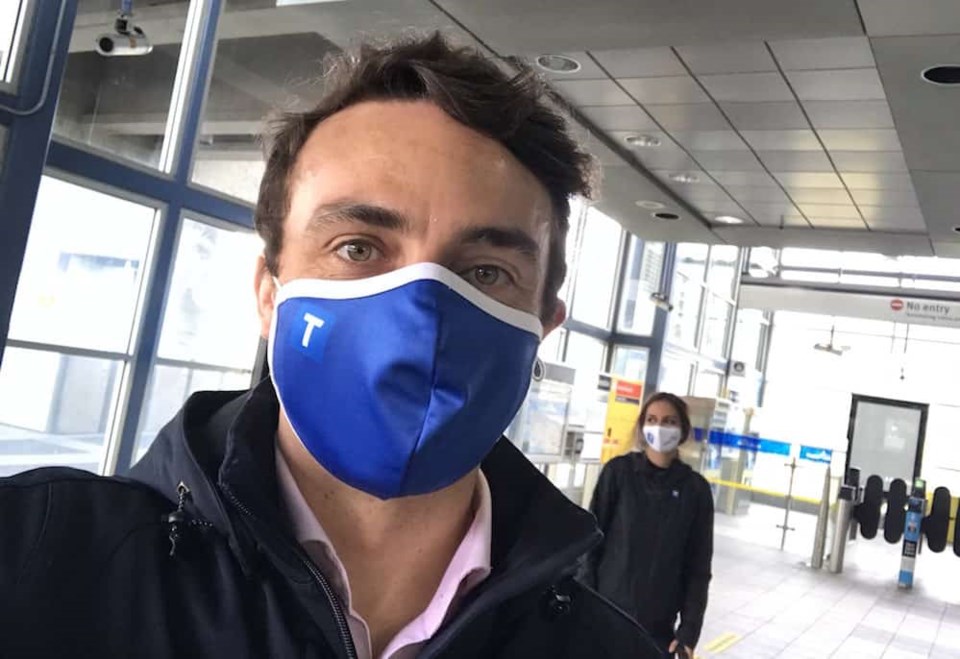On Aug. 24, Hugs Over Masks gathered outside of Metrotown SkyTrain Station to protest TransLink's new mandatory mask policy. However, TransLink says that 'anti-maskers' represent the minority of its riders.
In a release issued Wednesday, the transportation agency says a whopping 92 per cent of its customers are now wearing masks on board transit vehicles. The news comes just over a week after the new policy came into effect.
TransLink staff conducted spot checks at high customer volume locations across the system over several days last week. Approximately 31,000 customers were counted as part of the spot checks, and about 92 per cent of these customers were seen wearing masks.
“This is a very encouraging trend,” says TransLink CEO Kevin Desmond. “This level of compliance shows our approach is succeeding and we’ll keep working hard to ensure we can continue to build on these numbers. I’m pleased to see our customers are helping us make transit safer for the thousands of people who rely on the system every day.”
Customers are required to wear non-medical masks or face coverings while onboard all TransLink vehicles as physical distancing is not always possible on transit. Although Transit Police can enforce this rule requiring face coverings on transit, the initial focus of this policy is on awareness.
Exemptions for TransLink’s mandatory face covering policy include:
- Anyone with an underlying medical condition or disability which inhibits the ability to wear a mask or face covering;
- Persons unable to place or remove a mask or face covering without assistance;
- Children under 5 years of age;
- Employees working behind a physical barrier or within areas designated for employees and not for public access;
- Police, employees, or first responders in an emergency.
The mandatory mask policy is part of TransLink’s Safe Operating Action Plan, which includes increased cleaning and sanitizing of transit vehicles and hubs, increased service levels and steps to create space between customers where possible. Widespread mask use is essential for ensuring customers have confidence riding transit as British Columbia’s economy continues to reopen and more people commute around the region.




